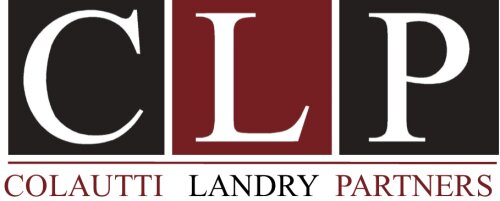Best ADR Mediation & Arbitration Lawyers in Windsor
Share your needs with us, get contacted by law firms.
Free. Takes 2 min.
List of the best lawyers in Windsor, Canada
About ADR Mediation & Arbitration Law in Windsor, Canada
Alternative Dispute Resolution (ADR) encompasses a range of processes that help people resolve disputes without going to court. The two most common forms are mediation and arbitration. In Windsor, Ontario, ADR is widely used in legal, commercial, family, and workplace conflicts. Mediation involves a neutral third-party (the mediator) who helps disputing parties discuss their issues and reach a mutually beneficial agreement. Arbitration, on the other hand, involves an arbitrator who listens to both sides and makes a binding or non-binding decision. The goal of ADR is to offer faster, more flexible, and less adversarial ways of resolving disputes compared to traditional courtroom litigation.
Why You May Need a Lawyer
While ADR aims to streamline the dispute resolution process and can sometimes be navigated without legal representation, there are many cases where you should consult a lawyer. Common situations include:
- Understanding your legal rights and obligations during an ADR process
- Preparing for mediation or arbitration, especially if the matter involves significant financial or personal stakes
- Interpreting complex contracts or agreements before entering mediation or arbitration
- Ensuring the enforcement or appeal of arbitration awards or mediated settlements
- Representing you in more formal or contentious ADR proceedings
- Negotiating fair settlement terms and avoiding unintended legal consequences
A lawyer experienced in ADR can provide valuable guidance, draft legal documents, and advocate for your interests, helping you navigate the process efficiently and effectively.
Local Laws Overview
In Windsor, ADR procedures largely follow Ontario’s provincial legal framework. Key laws and regulations include:
- Arbitration Act, 1991 (Ontario): Governs most private arbitrations in the province, detailing how agreements to arbitrate can be created, how proceedings should be conducted, and how arbitral awards are enforced or appealed.
- Mediation: While Ontario does not have a single Mediation Act, mediation in family law is addressed in the Family Law Rules. Courts in Ontario, including those in Windsor, may require parties to attempt mediation before certain matters proceed to trial.
- Mandatory Mediation: As part of the Ontario Mandatory Mediation Program, civil litigation cases in Windsor (Superior Court) may be referred to mediation to encourage early settlement.
- Enforcement of Agreements: Agreements reached through mediation or decisions from arbitration can be enforceable in the same way as court judgments, provided requirements are met.
- Confidentiality: Communications in mediation are generally confidential and may not be used in court unless both parties agree.
It is important to understand the specific procedures and rules applicable to your type of dispute, as well as the local court’s approach to ADR.
Frequently Asked Questions
What is the difference between mediation and arbitration?
Mediation is a process where a neutral mediator assists the parties in reaching a voluntary agreement. Arbitration is more like a court process where an arbitrator listens to both sides and makes a binding decision.
Is ADR legally binding in Windsor?
Mediated agreements are binding if both parties agree and sign a settlement document. Arbitration decisions are usually binding if agreed upon in advance, and can be enforced through the courts.
Do I need a lawyer to participate in ADR?
You are not legally required to have a lawyer, but legal advice is often beneficial, especially for complex or high-value disputes.
What kinds of disputes can be resolved through ADR?
ADR is used for civil, family, commercial, workplace, and even community disputes. Some criminal and certain family law matters may not be suitable for ADR.
How long does ADR take compared to court?
ADR processes are typically much faster than traditional court proceedings, sometimes taking only a few weeks or months, compared to potentially years in court.
Can I be compelled to participate in ADR?
In some civil cases, mandatory mediation may be required by the court before proceeding to trial. In other cases, ADR is voluntary or based on contract agreement.
How much does mediation or arbitration cost?
Costs vary depending on the mediator or arbitrator’s fees, the complexity of the dispute, and length of the process. ADR is generally more affordable than litigation.
What happens if ADR does not resolve the dispute?
If ADR fails, parties can typically proceed to court or, in some cases, try another form of dispute resolution.
Is ADR confidential?
Most ADR proceedings are private and confidential, unlike court trials, which are public.
How do I find a qualified mediator or arbitrator in Windsor?
Law societies, bar associations, and specialized ADR organizations can assist with finding qualified professionals locally.
Additional Resources
- Ontario Ministry of the Attorney General - Information on ADR programs
- Law Society of Ontario - Find a legal professional experienced in ADR
- Windsor-Essex Community Mediation - Local mediation services
- ADR Institute of Ontario - Standards and directories for ADR professionals
- Canadian Bar Association - Legal education and lawyer referrals
Next Steps
If you need legal help with ADR mediation or arbitration in Windsor, consider the following steps:
- Determine the type of dispute you are facing and gather relevant documents.
- Consult a lawyer with ADR experience to assess your rights and best course of action.
- Explore local ADR providers and mediation/arbitration services.
- Understand your obligations if ADR participation is mandated by the courts.
- Prepare for the process by clarifying your goals and possible outcomes.
- If an agreement is reached, ensure it is properly documented and, if required, enforceable in court.
Early legal advice and preparation can significantly improve the chances of a favourable resolution. Don’t hesitate to seek professional help to guide you through ADR processes in Windsor, Ontario.
Lawzana helps you find the best lawyers and law firms in Windsor through a curated and pre-screened list of qualified legal professionals. Our platform offers rankings and detailed profiles of attorneys and law firms, allowing you to compare based on practice areas, including ADR Mediation & Arbitration , experience, and client feedback.
Each profile includes a description of the firm's areas of practice, client reviews, team members and partners, year of establishment, spoken languages, office locations, contact information, social media presence, and any published articles or resources. Most firms on our platform speak English and are experienced in both local and international legal matters.
Get a quote from top-rated law firms in Windsor, Canada — quickly, securely, and without unnecessary hassle.
Disclaimer:
The information provided on this page is for general informational purposes only and does not constitute legal advice. While we strive to ensure the accuracy and relevance of the content, legal information may change over time, and interpretations of the law can vary. You should always consult with a qualified legal professional for advice specific to your situation.
We disclaim all liability for actions taken or not taken based on the content of this page. If you believe any information is incorrect or outdated, please contact us, and we will review and update it where appropriate.













